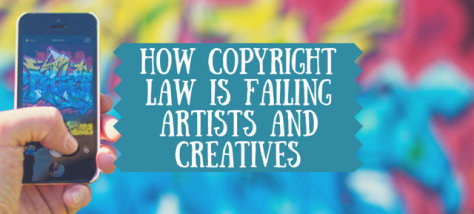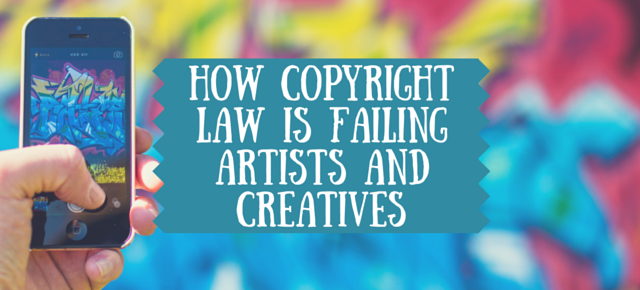
Published by The Strathclyde Telegraph.
It’s no secret that having a career in the arts can be difficult and competitive work, especially when copyright law continually fails to protect creatives and their property. One artist who knows this all too well is Mark Wardel, who was astonished to see his photograph of one of his custom-made David Bowie masks on the cover of Shortlist magazine’s January 2016 issue as a tribute to the late musician.
hey @ShortList that’s my photograph of my mask you’ve used…looks great but it’s copyright infringement! pic.twitter.com/Is9DdQAOgp
— Mark Wardel (@TradeMarkArt) January 20, 2016
Wardel told me: ‘I was totally shocked to see a picture I had taken in my studio with my iPhone on a magazine cover.’
Wardel said that Splash PR Agency approached him last March to enquire if they could syndicate the story about David Bowie buying Wardel’s masks. But when the project didn’t go ahead, Wardel heard no more from the agency.
Wardel added: ‘Somehow, without me being aware, my images got passed on to Corbis Images, where Shortlist and others, including Glamour Italy, bought and published them without crediting me.’
‘I do think it is was genuine mistake, and that Corbis Images were unaware that I hadn’t given permission. However, after speaking with a copyright lawyer, it seems that things are weighted very much in favour of big companies who know that, if challenged, they can offer the artist the fee they would have received anyway, and that any legal action would be expensive for an artist. There needs to be some standard practice for artists who find themselves in these situations. The legal aspects seem uncertain to say the least.’
Shortlist are now taking steps to rectify this mistake, and plan to run a feature on Wardel’s work next issue.
Unfortunately, these type of situations seem to be becoming commonplace, as last year artist Danny Quirk found out that his medical illustrations were posted online by Madonna, with her face pasted onto his artwork. As Quirk hadn’t given permission for his work to be used by the popstar, he initiated legal proceedings. But, sadly, as Quirk’s work had been edited by collage artist BessNYC4, the art was considered ‘transformative’ under the Fair Use doctrine and, therefore, was legally allowed to be used without any recognition awarded to Quirk.
While large companies and media labels have teams of lawyers with expertise on copyright infringement, even established creatives largely work alone without extended legal knowledge or aid. And, sadly, it seems that many are willing to take advantage.
Ironically, the companies who use creative works without permission are in a comfortable position to pay for said property. Yet creatives – who have a much harder time making the money they deserve and usually have to do a lot of unpaid work – would most likely be happy to work with large enterprises if they were transparent with their intentions, recognised the artist, and gave them a fair fee.
While copyright law continues to fail artists, it seems that large organisations will continue to take advantage until those in the arts take steps to educate themselves, spread the word, and stand up to those who plagiarise the work created by talented and often underappreciated artists.
What do you think of cases like Wardel and Quirk’s? Let me know in the comment section below.

